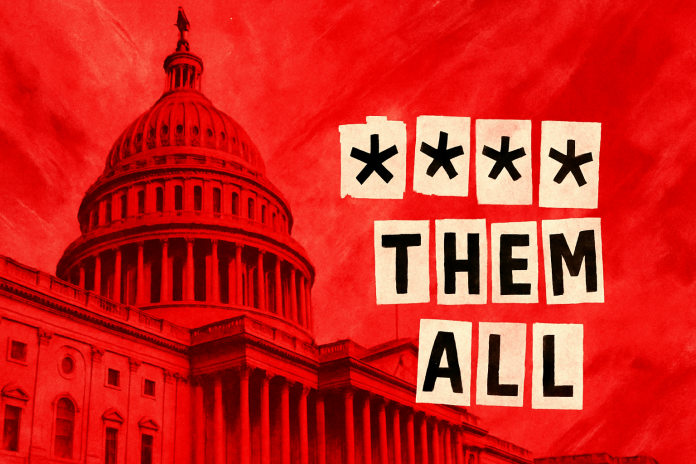The President of the United States has once again crossed a constitutional and legal line—this time not with ambiguity or bluster, but with a direct call that meets the plain language of federal law. Under 18 U.S.C. §§ 115, 373, and 879, it is a felony to threaten, incite, or solicit violence against members of Congress. Yet that is precisely what happened when the president publicly declared that certain Democratic lawmakers’ actions were “seditious behavior, punishable by death.”
Let’s be clear: this is not “political rhetoric.” It is not protected speech. It is a threat—a criminal one—issued from the highest office in the nation.
The laws in question were written to protect elected officials from intimidation and coercion, recognizing that democracy cannot function if its representatives fear for their lives. When the president invokes the language of execution against lawmakers for doing their jobs, he isn’t simply undermining norms; he’s committing what legal experts would define as a felony-level act of intimidation under federal statute.
But perhaps most chilling is how normalized this has become. The same administration that quietly reclassified swastikas and nooses as “non-hate symbols” now rationalizes direct threats of death as mere “political disagreement.” The pattern is unmistakable—and deeply dangerous. Symbols of hate are being stripped of their meaning at the same time violence is being reintroduced into political discourse as a tool of control.
The implications stretch beyond legality into morality. When the commander-in-chief frames dissent as treason, and opposition as a capital offense, the moral contract that underpins the republic begins to unravel. No one—not even the president—stands above the law. Yet law itself begins to lose meaning when its chief executor weaponizes it against his critics.
Federal agents, military officers, and intelligence officials are now in an impossible position: do they serve the Constitution or obey unlawful orders? The framers anticipated tyrants, but they did not anticipate social media as their megaphone.
This is the crossroads we face: a nation whose laws prohibit exactly the kind of conduct now being modeled from the top. Congress has a duty—not a political option—to respond. Silence will not de-escalate this moment; it will normalize it.
If democracy means anything, it must mean that power has limits. And when a president calls for death to silence dissent, America is not witnessing strength—it’s watching lawlessness dressed in patriotism.
History will ask who stood up when the law itself was under attack. The answer will define not only this presidency but the republic’s survival.




